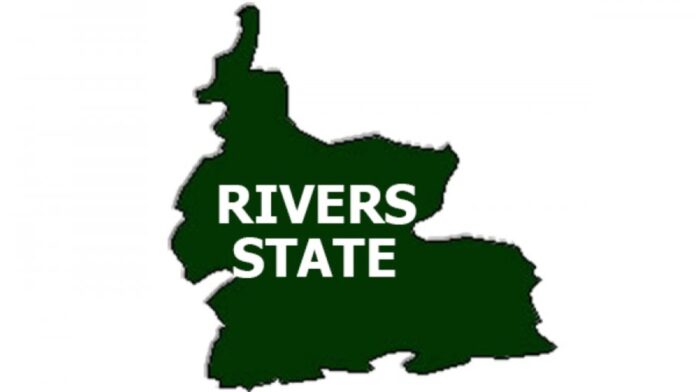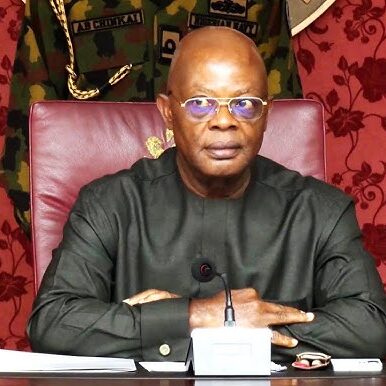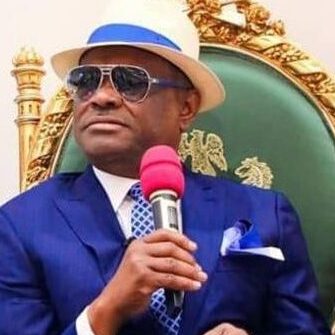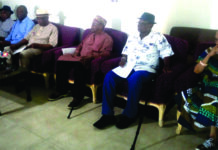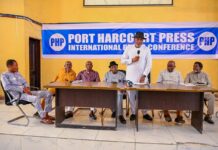– by celestine ogolo
With about one month to the end of the six-month period of emergency rule imposed on Rivers State by President Bola Tinubu, the people of the state and residents alike, tired and frustrated, have gladly begun a countdown to the end of the unpopular governance structure, which they believe should come to an end by September 17, 2025. Their optimism is based on the fact that the reasons that led to the declaration are no longer tenable.
Recall that President Tinubu had, on March 18, 2025, declared a state of emergency in Rivers State, attributing the action to what he described as deepening political crisis and governance breakdown, security threats and pipeline vandalism.
Through the emergency rule declaration, President Tinubu suspended the governor, Sir Siminalayi Fubara, his deputy, and all members of the state House of Assembly for an initial six-month period. He subsequently installed Vice Admiral Ibok-Ete Ekwe Ibas (rtd.), former Chief of Naval Staff as Sole Administrator of the state.
However, the declaration of the state of emergency sparked fierce debate over constitutional boundaries with the Nigerian Bar Association (NBA), civil society groups, and legal experts labelling the suspension of elected officials as unconstitutional, arguing that emergency powers do not extend to dissolving democratically elected governments.
So far, the emergency rule has been in place for five months and has entered its final month. The majority of the people of the state and residents are upbeat that the period of interregnum should be over soon to enable the state to return to normal democratic governance like the other states of the federation. The consensus is that President Tinubu would hearken to the voice of reason and reinstate the governor, his deputy, and members of the House of Assembly.
The call for the end of the emergency rule, which began as early as it was announced, has been intensified in the last couple of months following the reconciliation by the former warring groups.
In June this year, the Rivers Elders and Leaders Forum had called for the immediate lifting of the state of emergency and urged for the full restoration of all suspended democratic structures, as according to the group, “the will of the people must be respected.”
The Rivers Elders and Leaders Forum had earlier acknowledged that the “political tensions that pitched two sons of the state- the Minister of the Federal Capital Territory, Chief Nyesom Wike, and Governor of Rivers State, Sir Siminalayi Fubara- against each other deeply wounded the soul of the state and cast undeserved shadow on the collective image of the state. The Forum subsequently applauded the reconciliation between both leaders, describing it “as a long awaited relief and a turning point for the state’s political stability.”
With the consolidation of the peace and reconciliation, the FCT Minister, Nyesom Wike, suspended Governor Fubara and suspended Speaker of the Rivers State House of Assembly, Martins Amaewhule, were seen together for the first time in many months, attending a function. This public show of reconciliation and peaceful overtures reverberated across the state and signalled the return of peace.
In further response to reconciliation and peaceful overtures, the suspended governor requested his supporters across the state to dismantle all groups and organisations sympathetic to him during the period of the impasse
In June, he officially disbanded all his socio-political support groups, including the popular Simplified Movement, in a great display of willingness and acceptance of a peaceful resolution of the disagreements.
Speaking at a meeting with members of the now disbanded Simplified Movement in June, which included his Chief of Staff, Ehie Edison, former cabinet members, former LGA chairmen, elders, women and youth leaders, Fubara said the disbandment was “a sacrifice for total peace in the spirit of reconciliation.”
The Atlantic Bell reporters who went round parts of Rivers State report that the people of the state and residents alike are highly optimistic and enthusiastic that with the reconciliation and peace in the state between Wike and Fubara, which their supporters have accepted and keyed into, there would be no justifiable reason to extend the emergency rule.
According to them, the quiet and rancour-free conduct of party primaries and kick-off of campaigns for the LG polls in the state scheduled for August 30, 2025, are pointers to the fact that the state is set for the return of all democratic structures at the expiration of the six-month period in September.
Business owners, contractors, women, and youth groups in the state have all joined in the euphoria of the lifting of the emergency rule when it elapses.
Worrying trends:
However, while the majority of the people of the state are highly optimistic that President Tinubu will hearken to their pleas and lift the emergency rule when it elapses by September 17, 2025, a few individuals are still expressing cautious optimism over the lifting of the emergency rule.
They fear that recent statements emanating from some influential politicians from outside the state are pointers to the fact that there are elements pushing for an extension of the emergency period, though unjustifiably so.
They point to the recent utterances of a member of the House of Representatives, Julius Ihonvbere, who is also the leader of the National Assembly Emergency Rule Committee, on the state of work at the new Auditorium of the Rivers State House of Assembly under construction, which described as “stalled”, to be very misleading and geared towards achieving a sinister objective.
The cautious optimists further noted that by not caring to meet with the people of the state and feeling the pulse of the people on the streets, business owners, and others, it was a clear indication that the NASS Committee was up to something sinister, which may jeopardise the lifting of the emergency rule in the state.
Similarly, they point to the rather awkward and hasty award of contracts, a review of contracts awarded by suspended governor, and signing of contract agreements by the out-going Sole Administrator, with barely one month to the end of the emergency rule as, “raising eyebrows,” as to whether “there is more than meets the eye”.
The recent tour of government-owned media organs where he promised to revamp and re-equip the stations in six months, “if funds are provided,” is according to the cautious optimists, a sign that portends bad omen.
As it is presently, Rivers people are eagerly awaiting the lifting of the state of emergency. Anything short of that by September will be unpalatable to the people of the state. Even Nyesom Wike, the FCT Minister, said so in his last media chat.



